PRODUCTS

In these times, decisions large and small can have important consequences for educators. Everything from daily curricular choices and interpersonal encounters to long-term educational aims and approaches to educator-client relations is up for careful decision-making. While not every professional decision requires careful preparation and defense, more than ever, in our increasingly polarized, distrustful, and argumentative world, many more than we might anticipate do. How should educators prepare to make careful, defensible public decisions affecting their students and themselves? An important part of that preparation involves training in a range of logical and interpersonal abilities that come before and help to make good educational decisions. A Preface to Educational Decision-Making is aimed at describing those abilities, illustrating their professional uses, and providing a starting point for increasing educators’ practical skills in applying them.
What are these abilities? For the most part, they involve common-sense attention to the ways that educators can become clearer about the nature of actual decisions they are asked to make, and aware of what must be done to make those decisions ones that all concerned can recognize as reasonable and as logically presented, even if not universally agreeable. In short, these are factors that provide, for decision-makers and their audiences, a preface to decisions that matter to those who make them and to those affected by them. A most important, though widely ignored set of those abilities center on making the nature of particular decisions clear to all concerned. Those abilities involve becoming sensitive to the ways such decisions can become or can be made to be unclear. In the give and take of public educational decision-making processes, bad decisions are often, even usually begin with confusion over what is to be decided and over what is proposed as the decision to make. The ability to get clarification, and the habit of clarifying before committing are crucial to good decision-making. A second set of preparatory abilities involve recognizing what must be done to actually decide what is true and/or advisable, as part of a decision at hand. Making what is recognized as a reasonable and well-reasoned decision depends in large part on applying those abilities clearly and often publicly.
These two large sets of abilities are crucially connected. Making clear to oneself and to others what is to be decided is part and parcel of becoming aware of how to decide an issue at hand. This book works to explain the connections and to describe the order of their application. While most of these abilities have been described in other texts on what is usually called “informal logic,” A Preface to Educational Decision-Making is especially concerned with the sorts of decision that educators are called on to make in their professional lives. Moreover, this book widens the range of abilities to clarify and support professional decisions beyond what is usually discussed. The sections on educational speech acts and on deciding what to call true or advisable provide useful additions to educators’ repertoire of decision-making abilities. Finally, the discussion of interpersonal factors in public decision-making offers useful guides to reaching decisions with other educators and with clients.
Perfect for courses such as: Foundations of Education; Philosophy; Social Foundations, Methods Courses in Education; Pre-student Teaching; and most Graduate courses in Educational Theory, Curriculum, Social Issues
E-books are now distributed via VitalSource
VitalSource offer a more seamless way to access the ebook, and add some great new features including text-to-voice. You own your ebook for life, it is simply hosted on the vendor website, working much like Kindle and Nook. Click here to see more detailed information on this process.

Recognizing the "diversity crisis" in regards to the cultural dissonance between educators and their diverse students, Diversifying the Educator Pipeline provides a critical examination of the mistakes we have made in our efforts to bolster the presence of Black educators.
Grounded with the historical context of Black educators in America, Shaylyn Marks weaves research, practice and personal accounts to critically examine why efforts to diversify the educator pipeline have not yielded the desired results. With an analytical lens, the recruitment, preparation, and retention of Black educators is examined while offering alternative practices to strengthen these efforts. Acknowledging the cyclical nature of potential trauma and harm that occurs in educational spaces, insights and recommendations are provided for all stakeholders as a means to cultivate a diverse educator workforce that better supports and reflects diverse classrooms of students.
Diversifying the Educator Pipeline illuminates issues pertaining to the ways in which Black students and educators are disenfranchised, and serves as a call to action for the education community.
Perfect for courses such as: Socio-Cultural Foundations of Education; Teaching for Diversity and Social Justice; Cultural Perspectives in Education; Afrofuturism: in Search of the Black Fantastic; Black Feminist and Womanist Perspectives; Educational Leadership; Curriculum Development and Transformation; Advanced Topics in Education; Critical Thinking and contemporary Social Problem; Race and Ethnic Relations; The African American Experience in the United States; Cultural Diversity in U.S. Schools; and Sociology of Education
E-books are now distributed via VitalSource
VitalSource offer a more seamless way to access the ebook, and add some great new features including text-to-voice. You own your ebook for life, it is simply hosted on the vendor website, working much like Kindle and Nook. Click here to see more detailed information on this process.

“Who’s Gonna Water My Tomatoes?”: School Gardens, Kitchens, and the Search for Educational Authenticity updates an old concept for our modern age, utilizing school gardens and culinary kitchens where students grow, prepare, and eat their own food.
Over a century ago, the educational philosopher John Dewey proposed reforming education around the needs of the whole child, emphasizing academic learning and the child's social needs for effective participation in a democratic society. In Dewey’s view, children would best learn by engaging in authentic experiences that would introduce, complement, and complete their regular classroom experiences. Dewey talked about school gardens and kitchens as two specific laboratories where children could apply what they were learning in school in daily life. Today, the tensions between experiential learning and the more rote learning often found in regular classrooms remain. Educators increasingly find themselves accountable to the narrow performance pressures imposed by standardized testing, pressures that often squeeze out the joys and possibilities for more authentic and engaging learning found in real-world experiences.
This book explores Dewey’s philosophy with particular attention given to experiential learning’s relationship to gardens and kitchens. The school garden and kitchen movement itself has ebbed and flowed over the last hundred years in response to changing societal and educational pressures. This history leads to the present day, where the edible schoolyard movement is experiencing a new spring as educators, parents, and school communities find value in edible schoolyard’s possibilities for providing more wholistic education that better meets the academic, social, and emotional needs of students. The book focuses on a network of edible schoolyards by introducing educators, teachers, principals, and staff who are making edible schoolyards happen today. Their vision and motivations form in their favorite lessons and in the connections between garden and kitchen experiences to the more traditional subject matter favored on state tests. Suggestions and resources for starting new edible schoolyards, including suggested recipes, are provided for those who want to get growing with their own edible schoolyards.
Perfect for courses such as: Educational Reform; Educational History; Educational Philosophy; Educational Leadership; Curriculum Development and Transformation; Experiential Learning; Project Based Learning; and Educational Policy Environments
Library E-Books
We are signed up with aggregators who resell networkable e-book editions of our titles to academic libraries. These editions, priced at par with simultaneous hardcover editions of our titles, are not available direct from Stylus.
These aggregators offer a variety of plans to libraries, such as simultaneous access by multiple library patrons, and access to portions of titles at a fraction of list price under what is commonly referred to as a "patron-driven demand" model.
E-books are now distributed via VitalSource
VitalSource offer a more seamless way to access the ebook, and add some great new features including text-to-voice. You own your ebook for life, it is simply hosted on the vendor website, working much like Kindle and Nook. Click here to see more detailed information on this process.
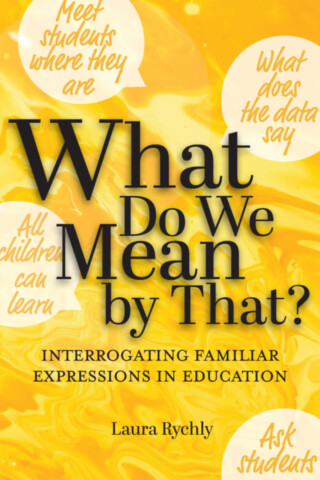
What Do We Mean by That?: Interrogating Familiar Expressions in Education is a collection of essays that opens a space for all educational workers—teachers, teacher educators, administrators, politicians, and others—to unpack commonly used educational phrases and ideas.
The idea is to carefully examine what we say to one another when we talk about schools, curriculum, students, and other educational problems or issues—when we say things like “We have to meet students where they are,” and “All children can learn,” or “What does the data say?” What Do We Mean by That? challenges and clarifies such phrases and the how, and why, that they shape educational policies and practices.
The influential curricular theorist Dwayne Huebner charged us to always be aware of our “man-made tools,” such as language, and said that since “all educators attempt to shape the world; theorists should call attention to the tools used for the shaping in order that the world being shaped can be more beautiful and just.”
Language is a tool in educational practice in myriad ways: between administrators and teachers, teachers and students, teachers and parents, and students and students, as examples. A scripted curriculum is a tool intended to provide fixed language to teachers. It is normal for phrases to make their way into our everyday practices and get lodged there. But we need opportunities to interrupt ourselves and study our language tools to ensure they help create beauty and justice.
This collection of thoughtful essays seeks to be this interruption. It is an invaluable tool for improving the educational experience of students and schools.
Perfect for courses such as: Foundations of Education; Curriculum Studies; Diversity in Education; Educational Rhetoric and Policy
Library E-Books
We are signed up with aggregators who resell networkable e-book editions of our titles to academic libraries. These editions, priced at par with simultaneous hardcover editions of our titles, are not available direct from Stylus.
These aggregators offer a variety of plans to libraries, such as simultaneous access by multiple library patrons, and access to portions of titles at a fraction of list price under what is commonly referred to as a "patron-driven demand" model.
E-books are now distributed via VitalSource
VitalSource offer a more seamless way to access the ebook, and add some great new features including text-to-voice. You own your ebook for life, it is simply hosted on the vendor website, working much like Kindle and Nook. Click here to see more detailed information on this process.
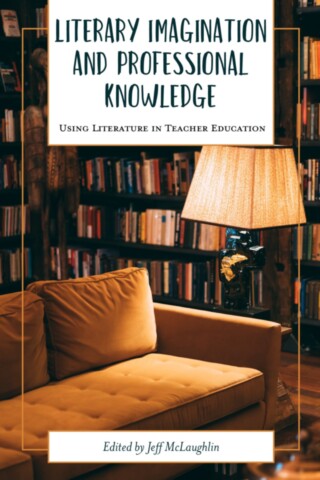
Literary Imagination and Professional Knowledge: Using Literature in Teacher Education establishes a foundation for expanding the use of literature in teacher education curricula. The contributors to this collection have a wide variety of education and experience, thus bringing a richness to the content of the volume.
Literature can be a valuable means for illuminating subject matter in college courses focused on educational psychology, educational foundations, human development, educational assessment, and other areas critical to the development of future teachers. When literary excerpts are incorporated into the presentation of content, the resulting connections can serve to enhance--in both quality and scope--student understanding and classroom discussions.
This book is intended to provide specific suggestions and outlines for incorporating literature (e.g., fiction, poetry, and narrative) in teacher education courses. A variety of genres, historical contexts, and specific applications are represented. Among the literary works highlighted are Great Expectations by Charles Dickens, Milton’s Paradise Lost, Brave New World by Aldous Huxley, Homer’s Odyssey, Dante’s Inferno, The Sum of Our Days by Isabel Allende, the Gilgamesh legend, the poetry of Jason Reynolds, the writings and artwork of William Blake, and classic folk and fairy tales. They are used as frameworks for introducing or exemplifying concepts typically covered in teacher education curricula. One chapter also describes a research investigation into the effects of using literature on pre-service teachers’ beliefs and attitudes about cultural diversity.
Perfect for courses such as: Educational Psychology │ Educational Foundations │ Child Development │ Teaching Methods - Elementary │ Teaching Methods - Secondary │ Student Teaching
Library E-Books
We are signed up with aggregators who resell networkable e-book editions of our titles to academic libraries. These editions, priced at par with simultaneous hardcover editions of our titles, are not available direct from Stylus.
These aggregators offer a variety of plans to libraries, such as simultaneous access by multiple library patrons, and access to portions of titles at a fraction of list price under what is commonly referred to as a "patron-driven demand" model.
E-books are now distributed via VitalSource
VitalSource offer a more seamless way to access the ebook, and add some great new features including text-to-voice. You own your ebook for life, it is simply hosted on the vendor website, working much like Kindle and Nook. Click here to see more detailed information on this process.
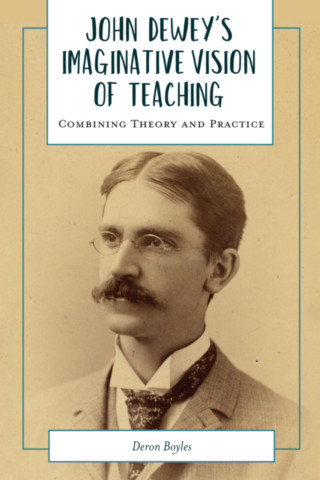
John Dewey's Imaginative Vision of Teaching explores key philosophical topics in John Dewey’s work, including epistemology, ethics, and aesthetics, and relates them to teacher practice and education policy. Each chapter begins with theory and ends with practical implications. While there are numerous books on Dewey, there are relatively few that connect his philosophy of education to actual practice. By linking primary fields of philosophy with classroom teaching and education policy, Boyles suggests that the binary between theory and practice is a false chasm that can and should be bridged if teaching and learning are to change into more dynamic, reflexive, and authentic interactions.
Perfect for courses such as: Becoming a Teacher | Applying Theory to Practice | John Dewey and U.S. Schools | Historical and Philosophical Ideas In Practice | Progressive Teaching
Library E-Books
We are signed up with aggregators who resell networkable e-book editions of our titles to academic libraries. These editions, priced at par with simultaneous hardcover editions of our titles, are not available direct from Stylus.
These aggregators offer a variety of plans to libraries, such as simultaneous access by multiple library patrons, and access to portions of titles at a fraction of list price under what is commonly referred to as a "patron-driven demand" model.
E-books are now distributed via VitalSource
VitalSource offer a more seamless way to access the ebook, and add some great new features including text-to-voice. You own your ebook for life, it is simply hosted on the vendor website, working much like Kindle and Nook. Click here to see more detailed information on this process.
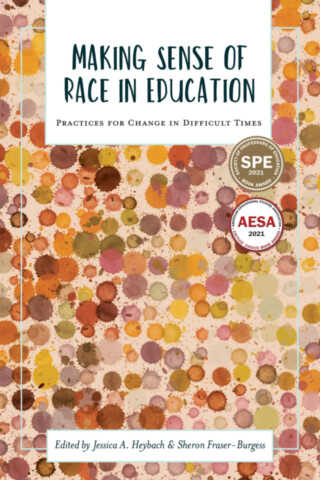
A 2021 SPE Outstanding Book Award Winner
Making Sense of Race in Education: Practices for Change in Difficult Times takes a fresh look at the perennial issue of race in American schools. How do educators, in all settings, confront the issue of race with students and colleagues, given the contemporary backdrop of social movements for racial justice and change? How do educators affect change within their everyday classroom practices without fostering further alienation and discord? Although much has already been written about race and racism in school, this book addresses racial incidents directly and offers practical insights into how P-20 educators can transform these events alongside students and colleagues. Each chapter provides detailed analysis of curriculum, instruction, practices and pedagogical strategies for addressing race while at the same time wrestling with theoretical conceptions of race, justice, and fairness.
Library E-Books
We are signed up with aggregators who resell networkable e-book editions of our titles to academic libraries. These editions, priced at par with simultaneous hardcover editions of our titles, are not available direct from Stylus.
These aggregators offer a variety of plans to libraries, such as simultaneous access by multiple library patrons, and access to portions of titles at a fraction of list price under what is commonly referred to as a "patron-driven demand" model.
E-books are now distributed via VitalSource
VitalSource offer a more seamless way to access the ebook, and add some great new features including text-to-voice. You own your ebook for life, it is simply hosted on the vendor website, working much like Kindle and Nook. Click here to see more detailed information on this process.
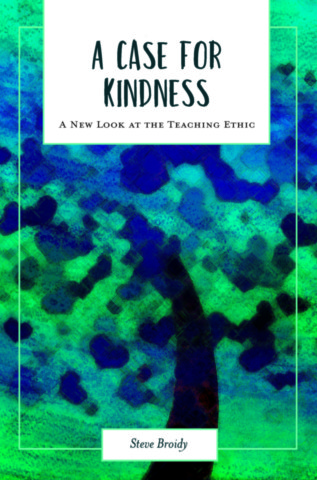
Library E-Books
We are signed up with aggregators who resell networkable e-book editions of our titles to academic libraries. These editions, priced at par with simultaneous hardcover editions of our titles, are not available direct from Stylus.
These aggregators offer a variety of plans to libraries, such as simultaneous access by multiple library patrons, and access to portions of titles at a fraction of list price under what is commonly referred to as a "patron-driven demand" model.
E-books are now distributed via VitalSource
VitalSource offer a more seamless way to access the ebook, and add some great new features including text-to-voice. You own your ebook for life, it is simply hosted on the vendor website, working much like Kindle and Nook. Click here to see more detailed information on this process.
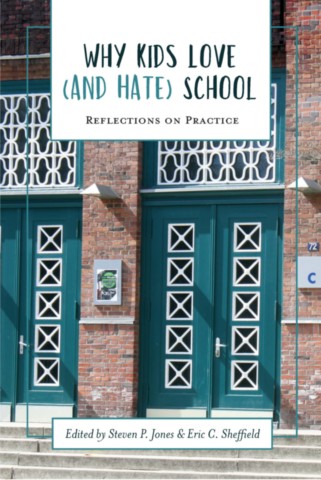
Some students enter classrooms with an “I dare you try to teach me” look on their faces, and others bounce into class excited to learn and anxious to please the teacher. We know we can’t automatically blame teachers or schools when students don’t want to learn. But we also know that sometimes teachers and schools don’t always set students up for success, and they don’t always help them love what they’re learning.
Why Kids Love (and Hate) School: Reflections on Practice investigates some of the school and classroom practices that help students love school—and some that send students in the opposite direction. Intended for classroom teachers, teacher education students, and school administrators, chapters in the book investigate a variety of topics: how schools can build effective school cultures, the “struggle” students encounter in learning, practices of other countries that help students love school, testing practices that cause students to hate school—and much more.
Perfect for courses in: Introduction to Education, General Methods, Management/Assessment, Educational Research, Educational Administration/Leadership, Teacher Leadership, Curriculum Theory, Curriculum Development.
Library E-Books
We are signed up with aggregators who resell networkable e-book editions of our titles to academic libraries. These editions, priced at par with simultaneous hardcover editions of our titles, are not available direct from Stylus.
These aggregators offer a variety of plans to libraries, such as simultaneous access by multiple library patrons, and access to portions of titles at a fraction of list price under what is commonly referred to as a "patron-driven demand" model.
E-books are now distributed via VitalSource
VitalSource offer a more seamless way to access the ebook, and add some great new features including text-to-voice. You own your ebook for life, it is simply hosted on the vendor website, working much like Kindle and Nook. Click here to see more detailed information on this process.
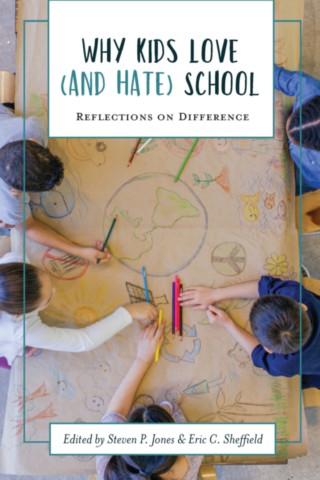
This collection consists of theoretical discussions, personal reflections, research reports, and policy suggestions sourced in the experiences of our most vulnerable students with an eye to making schools places all students might love rather than hate. The essays take up these issues from the perspectives of poverty, gender, race, ethnicity, ability, language, and religion among others.
These essays also provide practical advice for teachers and administrators—both practicing and pre-service—for making classrooms and schools spaces that would encourage our students to say, “I love school.”
Perfect for courses in: Introduction to Education, General Methods, Social Foundations of Education, Diversity, Management/Assessment, Philosophy of Education, Sociology of Education, Educational Research, Educational Administration/Leadership, Teacher Leadership, Curriculum Theory, and Curriculum Development.
Library E-Books
We are signed up with aggregators who resell networkable e-book editions of our titles to academic libraries. These editions, priced at par with simultaneous hardcover editions of our titles, are not available direct from Stylus.
These aggregators offer a variety of plans to libraries, such as simultaneous access by multiple library patrons, and access to portions of titles at a fraction of list price under what is commonly referred to as a "patron-driven demand" model.
E-books are now distributed via VitalSource
VitalSource offer a more seamless way to access the ebook, and add some great new features including text-to-voice. You own your ebook for life, it is simply hosted on the vendor website, working much like Kindle and Nook. Click here to see more detailed information on this process.



